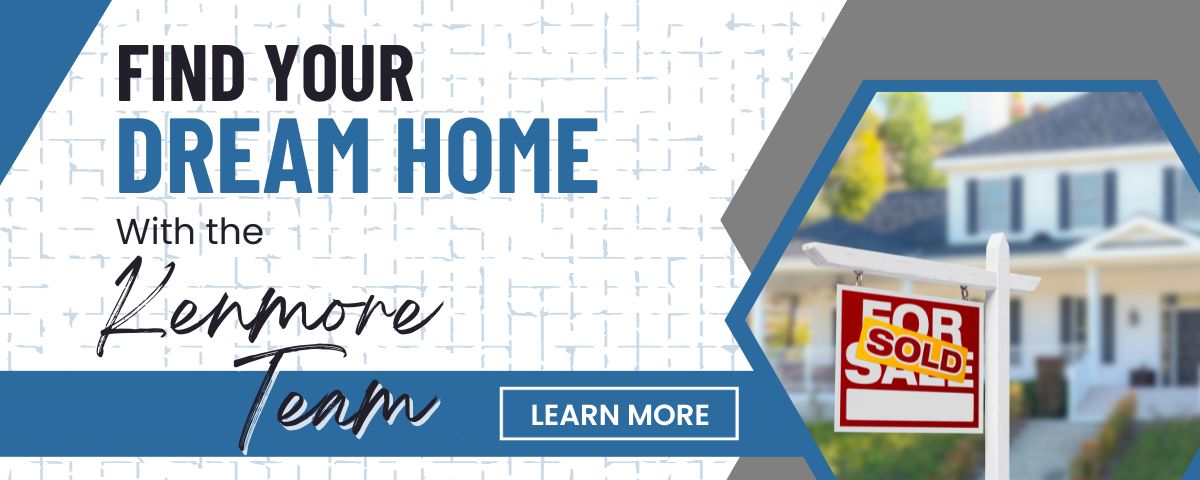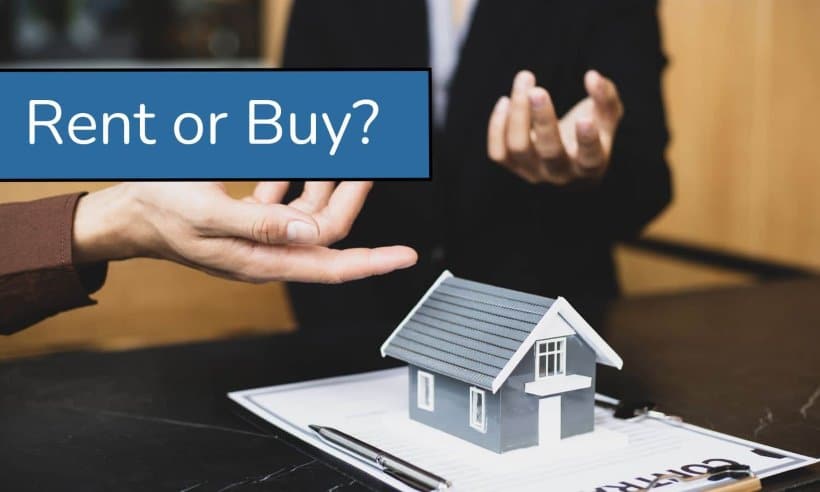Few would argue that most people’s idea of the American Dream often involves owning a home. But deciding whether to rent or buy is a significant choice that impacts your finances, lifestyle, and personal objectives. Ultimately, the decision whether to rent or own a home should be based on your individual circumstances.
There are some pretty significant distinctions between renting and owning a property. Renting eliminates the responsibilities that come with homeownership and provides more flexibility. On the other hand, owning a home represents a substantial investment but entails significant upfront and long-term costs.
It is not always preferable to own a home, nor is renting always straightforward. Here, we’ll highlight some of the crucial differences between renting and buying.

Rent
One of the misconceptions about renting a home is that you’re wasting money every month. This is just not accurate because you need a place to live, right? That will always involve expenses in one way or another. Even though you aren’t building equity with monthly rent payments, not all homeownership expenses contribute to equity building.
First of all, when you rent, you know precisely how much you will pay for housing each month. This amount is specified in your lease, allowing you to plan your budget accordingly. In some cases, your landlord may include other expenses in that amount. Utilities, storage, and maybe even homeowner association (HOA) fees.
One potential downside to renting is that you may face rent hikes each time you renew your lease. These increases can be especially steep if you reside in specific parts of town. However, if you live in a region with rent ceilings and rent control, the landlord’s ability to increase rent is limited.
While renting allows you to move whenever your lease expires, it can also mean less certainty and stability. Landlords can sell properties or decide you’re not a right fit and choose not to renew your lease. Also, they could raise the rent beyond what you can afford.

Buy
Owning a home has both tangible and intangible advantages. Foremost, you have your own space and the ability to make design decisions. In addition, you also enjoy a sense of stability and pride of ownership.
However, if you change your mind about your living situation it can be expensive. This is because real estate is an illiquid asset.
You may not be able to sell when you want. And even if you do, you may not get the price you want. Particularly if the housing market is down.
Additionally, there are significant transaction costs associated with selling your property, even if the market is up.
The overall cost of homeownership tends to be higher than renting. That’s even if your mortgage payment is lower than your rent. As a homeowner, you will incur expenses that renters do not typically have to pay. These include:
- property taxes
- trash pickup
- water and sewer service
- pest control
- landscaping
- homeowners insurance
And there can be more. Particularly if you live in an area susceptible to weather events. While the costs may vary depending on where you live, one thing that’s certain is that they add up.
In addition, interest can account for almost all of your monthly payments during the early years of a long-term mortgage. On a 30-year loan, it may take up to 13 years before more of your payment goes toward the principal balance. Even if you only borrowed $100,000 at 7.5% for 30 years, you could spend roughly $150,000 in interest. It should be mentioned that you may be able to recover some of that through tax deductions if you itemize.
Finally, home maintenance and repairs can be expensive. An unexpected roof leak, for example, could cost up to $12,000 to replace. And there’s no guarantee it’ll be covered under your home insurance policy. Click here to check out current available homes for sale in Pasco.

Key differences to keep in mind
Property value
As mentioned earlier, owning a home is often promoted as a means of generating wealth. However, like any investment, there are factors that can have either positive or negative impacts on your property’s value. These factors include:
- Economic conditions
- Maintenance requirements,
- Environmental issues
- Outdated interiors
- Housing surpluses
It’s worth noting that these factors can also affect renters. Negative conditions may actually lead to reduced rental costs as landlords seek to attract tenants.
Tax breaks
Homeowners can take advantage of tax benefits such as the home mortgage interest deduction. This can reduce out-of-pocket expenses during the early years of the loan if deductions are itemized.
However, renters do not receive any mortgage tax deductions. Of course all taxpayers can still take the standard deduction. That includes homeowners who may not have enough deductions to itemize individually.
Repair and general maintenance costs
As previously mentioned, owning a home comes with the responsibility of maintaining and regularly updating the property. Unfortunately, renovations and repairs do not often add more value to your home than what you spend on them.
If you reside in a community with an HOA, you may have some of these chores taken care of for you. But this service typically comes with a monthly fee of a few hundred dollars. Also, be aware that HOA membership can bring its own set of complications.
If you’re a renter, your landlord is responsible for all repairs and maintenance. But it’s always possible that these tasks may not be completed as quickly or efficiently as you’d like.
Interestingly, the home improvement projects that tend to offer the highest return on investment are often not the most glamorous. For instance, replacing a garage door is one of the few projects that consistently comes close to covering its cost.
Other considerations
Whether to rent or own a home is a decision that is dependent on various factors. Your personal financial situation, comfort, and future vision should all be considered. Blanket statements such as “owning always makes more sense” or “renting is throwing away money” should be ignored. The housing market and life circumstances are diverse.
Despite the risks, expenses, and responsibilities associated with owning a home, many people choose it over renting. And for very good reason. It offers a permanent place to raise a family and can create the type of residence they want. Ultimately, the decision to rent or own is not solely financial but also emotional. Click the link to see available Richland WA homes for sale.

Is renting less expensive?
While renting can provide a predictable expense, it’s not necessarily cheaper than owning a home in the long run. Owning a home can offer potential benefits such as building equity, tax deductions, and the potential for appreciation in home value.
However, there are also additional expenses that come with owning a home such as property taxes, maintenance, and repairs. Whether renting or owning is cheaper depends on individual circumstances such as location, housing market trends, and personal finances.
Is buying a good investment?
The short answer is, yes. Buying a home can absolutely be a good investment. Just remember it’s not always a guaranteed one. Factors such as the housing market, the economy, and location can all impact the value of your home.
Additionally, there are costs associated with homeownership. It’s important to carefully consider your financial situation and personal goals before deciding whether homeownership is a good investment for you. Check out available Kennewick homes for sale here.
So which is better?
Determining whether renting or owning a home is better for you depends on various factors. Really, it boils down to what’s best for you. Consider your finances, lifestyle, and plans for the future.
There is no one-size-fits-all answer to this question. In the end, it depends on your unique circumstances and what you value most in terms of housing.
As a real estate brokerage, we’d never want to discourage anyone from realizing the dream of owning their own home. In fact, it’s just the opposite. Purchasing a home is one of the most fulfilling and rewarding accomplishments a person can experience.
What we do want is for you to be able to make an informed decision. And to know that either way, the Kenmore Team is here to help. Whether you’re on the hunt for your next rental, or looking to buy one of many beautiful Tri-Cities homes, we’ve got you covered.
Our experienced team of local experts can help you find your next house, no matter what you decide. Connect with us to get started!

